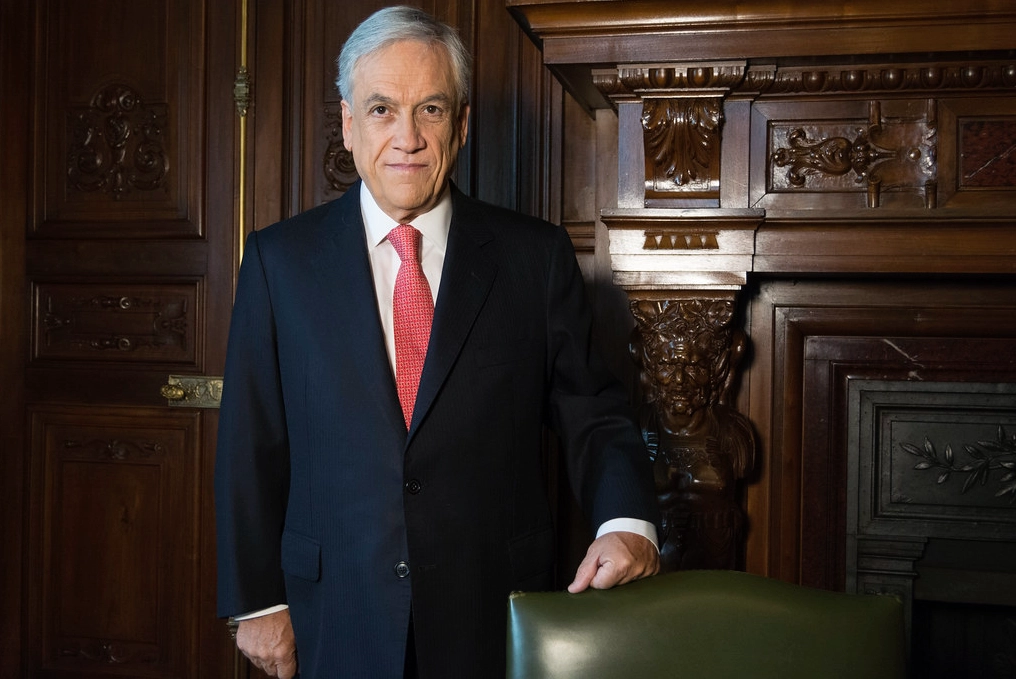Two months after the unexpected death of former President Sebastián Piñera, a prominent bastion of the center-right in Chile, his legacy fluctuates between building bridges and regional institutions and giving way to the radical populist right in the southern country.
Lights, Shadows, and Nuances of Piñera’s Legacy
During his two non-consecutive terms (2010-2014 and 2018-2022), Sebastián Piñera forged strong economic and humanitarian cooperation ties with Latin American governments. An example of this was the creation of the Pacific Alliance (PA) in 2012 together with former presidents Juan Manuel Santos (Colombia), Felipe Calderón (Mexico) and Ollanta Humala (Peru). To date, the PA has been a major step forward in regional economic integration, facilitating the free movement of goods, services, capital, and people among its member countries. Piñera also played a key role in the Colombian peace process with the FARC in 2012. His government acted as a guarantor and provider of advice to give greater international weight to the negotiations with the armed group.
With his great political successes, Piñera was not without controversy. The Pandora Papers revelations implicated him in questionable financial activities, including the sale of his shares in the Dominga mining project in 2010, made shortly before assuming his first presidential term. This, added to his alleged influence in the processing and approval of the project that implied a high environmental impact led him to a first constitutional accusation. In addition, during his second term, he faced allegations of abuses and human rights violations by law enforcement during the 2018 social protests, which resulted in a historic second constitutional accusation against him.
Despite this, various figures in the current government have recognized the importance and legacy of the former Chilean president. Even President Gabriel Boric, who was a fierce opponent during his term, admitted: “As opposition, at times during his government the complaints and recriminations went beyond what was fair and reasonable…. He acted in a way that I disagreed with, but always, I repeat, always, using the mechanisms of democracy and the Constitution”.
The window of opportunity for Chile’s far right
During his second term, Piñera and a good part of his political sector promoted laws that would allow updating and regulating the migratory law. For some, his government gave signs that the southern country was an open-door house for migrants due to his speeches in several media and international events.
The recent rise of the far right in Latin America has been associated with an iron fist against criminal gangs (El Salvador), ending the privileges of the political “caste” (Argentina) or the return and empowerment of insurgent groups (Colombia). In Chile, it seems to be linked to crime and its relationship with migration. The latter, paradoxically, was boosted during the Piñera administration.
Today, crime and migration have captured the attention of most Chileans. According to the Pulso Ciudadano survey at the beginning of March, Chileans surveyed consider crime (51.9%) and migration (31.4%) the country’s main problems. Likewise, at the beginning of April, the CADEM survey showed that 90% of those polled agreed that the country should place more restrictions on migration, and 70% of them believe that there is a great conflict between Chileans and immigrants.
In contrast to these data, the report of the Interior Government Commission in mid-March released figures on recorded crime and its relation to migrants. The General Inspector of Carabineros de Chile, Jean Camus García, assured that, as of January 2024, there are 14,995 detainees. Of these, 2,065 correspond to migrants in the Metropolitan Region. According to these data, 13.8% of the crimes were committed by migrants, while 86.2% were committed by Chileans.
Of course, the complex uncertainty and misinformation that the country is going through is also because its institutions and various political sectors (right and left) have not been up to the challenge. As a result, the window of opportunity has been seized by very bold radical populist right-wing politicians such as José Antonio Kast, Rojo Edwards and Johannes Kaiser, who have managed to channel the uncertainty of Chileans and adjust them to their speeches and programmatic proposals. Even, some national personalities such as Alexis Kaiser — director of the Foundation for Progress — have publicly stated: “…in terms of public order, you have to give much more support to the Carabineros, and the Armed Forces, so that they can do their job, doing their job implies that bullets run, blood runs, people die…”.
With his lights and shadows, Piñera tried to become a referent of consensus, perhaps because he already foresaw the radicalization of his political sector. Now more than ever, there is a need for a figure in the political center who can articulate the concerns of society within the democratic framework and, in turn, stop giving way to polarization and the admiration of populist leaders who erode the foundations of democracy. After all, as Winston Churchill noted: “Democracy is the worst form of government, except for all the others”. Consequently, democracy is imperfect — we know that — but it is the best of all possible options.
*Translated by Janaína Ruviaro da Silva from the original in Spanish.
Autor
Political scientist and professor at the Catholic University of Temuco. Doctorate in Administration and Public Policies - National University of Córdoba.
Academic of the Dept. of Sociology, Political Science and Public Adm. of the Catholic Univ.of Temuco (UCT). PhD candidate in Political Science, Univ. Diego Portales (UDP). Researcher at ICSO/UDP and at the Center for Public Policy/UCT.












